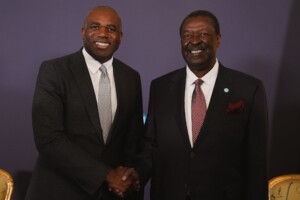At least 198 dead in Sudan Blue Nile state clashes
The death toll rose to at least 198, with more than 90 injured as a result of the Wad El Mahi inter-communal clashes in Blue Nile state. The regional government declared a state of emergency, preventing large gatherings and vehicle rental, as well as imposing a curfew in an effort to stem the violence.
 Victims of the clashes in Um Darfa, Blue Nile state, in September (social media)
Victims of the clashes in Um Darfa, Blue Nile state, in September (social media)
The death toll rose to at least 198, with more than 90 injured as a result of the Wad El Mahi inter-communal clashes in Blue Nile state. The regional government declared a state of emergency, preventing large gatherings and vehicle rental, as well as imposing a curfew in an effort to stem the violence.
In an interview with Radio Dabanga, the Director General of the Ministry of Social Welfare and head of the High Emergency Committee in the Blue Nile region, Ezzeldin Ali Suleiman, stated that a number of bodies are still yet to be accounted for, adding that a number of injured had also not been evacuated from the conflict area.
Suleiman confirmed the authenticity of images circulated on social media regarding the burned and charred bodies, stating that “a large number of homes were burned during the clashes”. He also emphasised that the situation is still tense, and a large number of forces have been called out to quell the conflict.
According to Suleiman, the region has seen around 5,000 people displaced from Wad El Mahi to nearby impromptu shelters. He stated that the High Emergency Committee will continue to provide aid to those in need.
Hausa leader Mohamed Mousa Ibrahim told Radio Dabanga that the “persistence of tension in Wad El Mahi region” has caused severe deterioration in the area’s humanitarian conditions.
Ibrahim said that a number of bodies are still in the open, and echoed Suleiman’s concerns that a “number of the wounded have not been taken to hospitals because of the security situation”. Unlike Suleiman however, Ibrahim denied the authenticity of the pictures circulated on social media of the burnt and charred bodies.
Blue Nile state violence
In Wad El Mahi, near El Roseires in Blue Nile state, inter-communal violence renewed on October 13. "As fighting continues, at least 1,200 people have been displaced and an unconfirmed 170 people have been killed and 327 have been injured", UN Office for the Coordination of Humanitarian Affairs (OCHA) in Sudan wrote in its latest update.
As a result of the conflict, the governor of Blue Nile state issued a decree prohibiting the movement of civilans driving lorries within big parts of Wad El Mahi. "This restriction to freedom of movement prevents people from seeking safety and accessing life-saving services, thereby endangering their right to life," OCHA states.
According to unconfirmed reports, two people from El Hamaj tribe were killed in a land dispute in Wad El Mahi on October 13, which led to clashes between the Hausa community and other tribes.
The violence that erupted in mid-July between El Funj, Berta, El Hamaj and Hausa in the northern part of Blue Nile state left at least 105 people dead and caused thousands to flee to the capital Ed Damazin and safe parts of El Roseires, flared up in September as well. At least 24 people were killed when the violence resurfaced. At least 149 people died before October 6, according to OCHA.
*The Hausa in Sudan are part of the Hausa ethnic group, which is very influential in West Africa, politically and culturally. In the process of traveling and trading for centuries, some of them migrated east to places like Sudan – where they are still seen by many as outsiders. The Hausa are generally perceived in Sudan as 'peaceful people and excellent tradesmen'.











 and then
and then